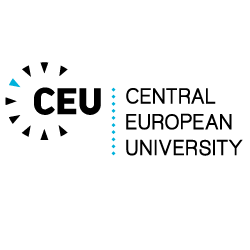Central European University is a graduate-level university where faculty and students from more than 100 countries come to engage in interdisciplinary education, pursue advanced scholarship, and address some of society’s most vexing problems. Located in the heart of Central Europe – Budapest, Hungary – CEU has developed a distinct academic and intellectual focus, combining the comparative study of the region’s historical, cultural, and social diversity with a global perspective on good governance, sustainable development and social transformation. The Cultural Heritage Studies Program at CEU offers a variety of theoretical approaches to cultural heritage combined with a practical knowledge based on fieldwork and internship at heritage organizations. The result is a hands-on, thorough academic training that prepares future heritage experts and practitioners with a critical understanding of the historical, social, policy and management aspects of tangible, intangible, and environmental heritage. Our faculty’s expertise crosses borders and disciplines, including anthropologists specializing in African and American cultures, international heritage law professionals, and archeologists with experience in European and Asian excavations. Our students come from a variety of backgrounds, such as historical studies, the creative and performing arts, architecture and urban development, sociology and management. They can choose from two streams of study: Academic Research and Protection of Cultural Heritage, and Cultural Heritage Management and Policy. Graduates typically find jobs at research bodies, governments, international organizations, heritage institutions and NGOs.
Research fields:
-
Changing attitudes in past societies to different cultures and civilizations, global interactions of cultures and civilizations in the past, and the impact of this process in the present
-
Relation between academic research fields and analytical approaches; the ability to conduct research using a variety of academic methods
-
The impact of tourism and commercialization on object-based and intangible cultural heritage policy
-
Connections between heritage elements and identity building (universal, European, national, minority, local, etc.) processes
-
Policy and management aspects of cultural heritage and of the need for a holistic approach to heritage protection and sustainable development
-
Archaeological heritage management and interpretation
-
GIS applications in cultural heritage research
-
Crowdsourcing and social media in cultural heritage studies and management
-
The interaction of cultural heritage and environmental management
-
Legal protection of cultural heritage and illegal trade
-
Intangible cultural heritage and memory
-
Ethical issues, intellectual property, and privacy
-
Publication and presentation of cultural heritage
-
Curriculum development and cultural heritage studies in higher education
József Laszlovszky (PhD), is Head of the Cultural Heritage Studies Program and Professor at the Department of Medieval Studies at Central European University. He obtained his PhD in History (Hungarian Academy of Sciences), and he holds two MAs in History and Archaeology (Eötvös Loránd University, Budapest). He was the leader of several archaeological field projects in the framework of European co-operations (Mont Beuvrey, France; Senlis, France; Ravenna, Italy; Visegrád, Hungary). His cultural heritage-related activity covers a broad area. He organized a number of summer schools in various topics, such as Cultural Heritage in Danger; Documentation and Reconstruction of Cultural Heritage; People and Nature in Historical Perspective. He was a convener in the nomination of Visegrád as a UNESCO World Heritage Site, and the author and editor of volumes on the royal palace there. He was a project team leader of the Jaya Koh Ker Heritage Project in Cambodia. Professor Laszlovszky teaches courses on the historiography and research resources of cultural heritage, on various aspects of environmental heritage, on monastic heritage, on the concept of ruins as tangible heritage, on the urban heritage of Budapest, and he has been organizing academic field trips for students of the CEU for two decades. He is the Chairman of the Curatory Board of the Archaeolingua Foundation and Publishing House.
Dóra Mérai (PhD), is postdoctoral fellow at the Cultural Heritage Studies Program. She holds three MA degrees: in Art History, Archaeology (Eötvös Loránd University, Budapest), and in Medieval Studies (Central European University), and a PhD in Medieval Studies (Central European University). Her research is focused on early modern material culture and issues related to memory, identity, ethnicity, and religion. She worked eight years in museums starting as an assistant and finishing as the director of a town museum. She was involved in programs inventorying tangible heritage in various parts of Central-Eastern Europe as a first step of conservation and revitalization programs. As a board member of the Association of Hungarian Archaeologists, she has been involved into a number of projects targeting the involvement of the broad public into heritage-related questions; for example, she is one of the initiators and organizers of the Day of Archaeology in Hungary, an annual festival organized in heritage-related institutions all over the country. In the Cultural Heritage Studies Program, she has taught courses on cultural heritage project management, memory and media, as well as on the urban heritage of Budapest.
Volodymyr Kulikov (PhD) is visiting faculty at the Cultural Heritage Studies Program. He graduated in history at the V. N. Karazin Kharkiv National University, Ukraine where he also obtained his PhD and was member of the teaching faculty until 2017. In the recent years he has run research projects in the Institute for East and Southeast European Studies, Regensburg, Germany, The University of Texas at Austin, The Kennan Institute, Washington DC, USA, the Institute for Russian and Eurasian Studies of the Uppsala University in Sweden, The Center for Urban History of East Central Europe, Lviv, Ukraine, and in the New Europe College, Bucharest, Romania. His research interest covers business history, the history and heritage of company towns, and industrial heritage. He co-edited a recently published volume on the history of company towns in the Donbas. He has taught courses on various aspects of the history of Russia and Central Eastern Europe, IT applications in historical and heritage studies, and crowdsourcing and social media in heritage studies.

